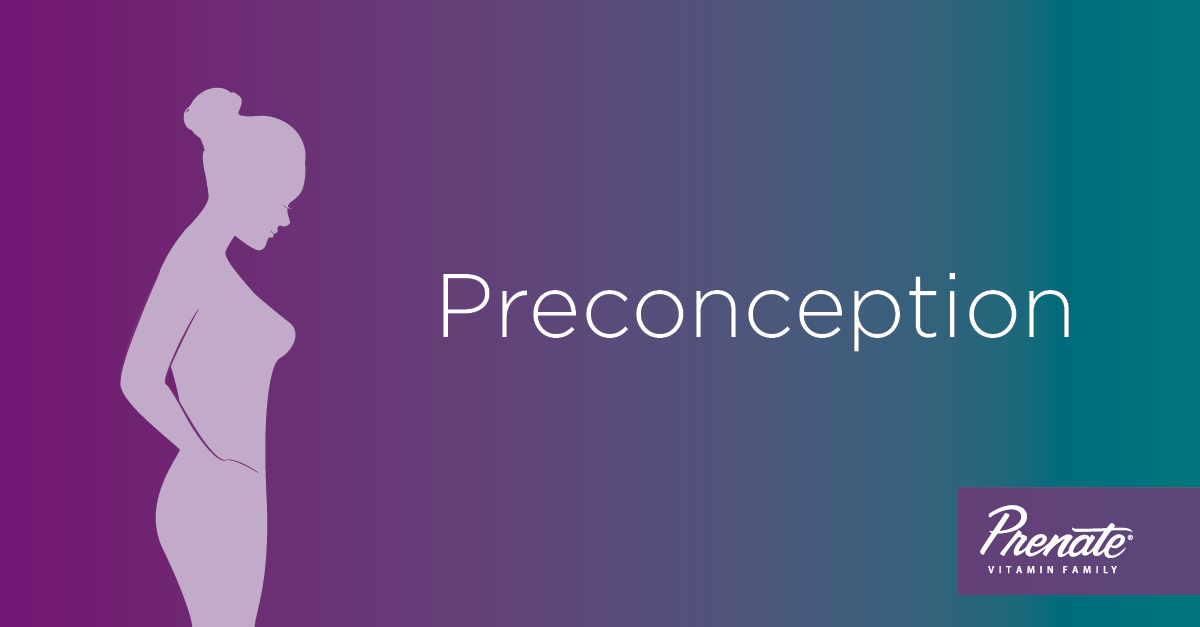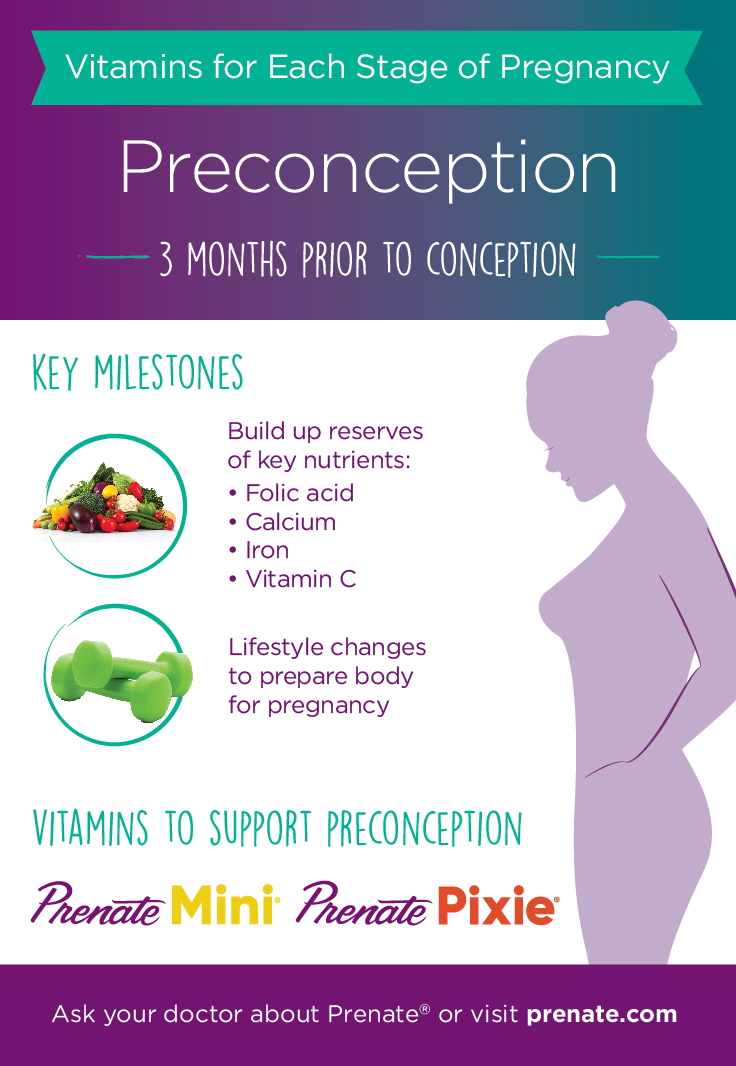Prenatal Vitamins for Each Stage of Pregnancy: Preconception – 3 Months Prior to Conception
September 1, 2017
Congratulations on your decision to have a baby! You may be thinking about pregnancy for the first time or expanding your existing family. No matter your circumstances, there are a few things that all women should do when trying to conceive.
Three months before conception is an ideal time to start focusing on exercise, diet and nutrition. If you don’t already exercise regularly, start incorporating 30 to 45 minutes of cardio each day, three to four days a week. Talk to your health care provider about the frequency and intensity of exercise that is right for you. Exercise is important because a healthy body weight pre-pregnancy can improve positive pregnancy outcomes for both moms and babies.
The three months before conception is also the time to cut back on and eventually eliminate alcohol and tobacco use. Eating a well-balanced diet with plenty of whole grains, veggies, fruit and lean protein also can also help prepare your body for pregnancy. During preconception, focus on obtaining essential nutrients that will be critical for successful pregnancy outcomes and support your baby’s development.
Key Nutrients During Preconception:
- Folic Acid – Folic acid plays a critical role very early in pregnancy. The development and closure of a baby’s neural tube (which eventually becomes the spine) occurs between day 14 and day 28 of pregnancy. Folic acid levels affect neural tube closure. Because this development occurs so early in pregnancy, a mom-to-be needs to make sure she is consuming an adequate amount of folic acid before conception.
- Iron – During pregnancy, a woman’s blood volume increases 50 percent and her need for hemoglobin also grows. Hemoglobin is a protein that carries oxygen through the blood, and iron plays a critical role in its manufacture. Iron also helps us maintain healthy immune systems and prevents anemia. Having ample reserve will help when your body and baby need greater amounts of iron.
- Vitamin C – In addition to acting as an antioxidant to protect and repair cells from damage, vitamin C can help your body absorb the iron it needs to prepare for pregnancy.
- Calcium – It’s important to start building calcium reserves before becoming pregnant, as it takes longer to build up levels of this mineral in the body. If you become pregnant, your baby will draw calcium from your bones if your diet does not include enough of this nutrient to meet your baby’s needs.
Prenatal Vitamins for Preconception
While a balanced diet is a preferred way of meeting nutritional needs, some women may have trouble achieving their daily recommended intakes for certain vitamins and minerals from diet alone. The Prenate® Vitamin Family offers a line of prenatal vitamins that are designed to carry moms and babies through preconception to pregnancy and into the weeks and months after delivery. These vitamins are specifically formulated to fit the needs of preconception:
- Prenate Pixie® is our smallest softgel prenatal vitamin. It can be taken before conception and is mighty enough to support moms and babies through pregnancy.
- Prenate Mini® is a small but robust softgel prenatal supplement with 14 nutrient forms.
Talking to your Health Care Provider About Prenatal Vitamins
The American Congress of Obstetricians and Gynecologists and the National Institutes of Health both recommend that women of child-bearing age take a daily vitamin that contains folic acid. This essential nutrient and others should be included in the diets of all women who are planning for pregnancy. The Prenate® Vitamin Family helps support expecting moms with robust doses of key nutrients. Talk to your doctor to see if a Prenate® prenatal vitamin may be right for you to help fill nutritional gaps.









